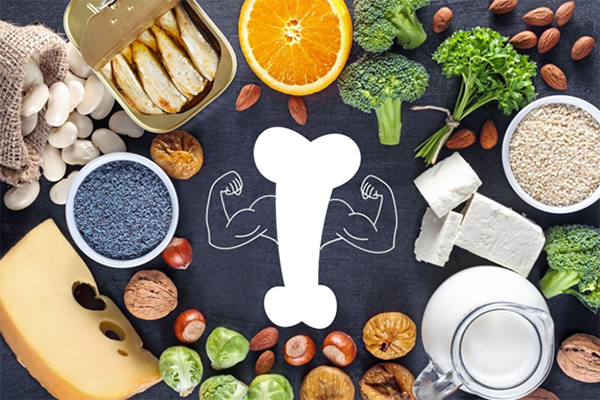
As March is National Nutrition Month, there’s no better time to focus on how proper nutrition can support joint health—especially for those preparing for or recovering from knee or hip replacement surgery. What you eat plays a vital role in reducing inflammation, strengthening bones, and promoting tissue repair. Consider these dietary choices to optimize your body’s ability to heal and get back to an active lifestyle faster.
Pre-Surgery Nutrition: Strengthening Your Body
Before joint replacement surgery, it's important to prepare your body by strengthening bones, reducing inflammation, and optimizing overall health. Focus on:
- Calcium-Rich Foods (dairy products, leafy greens, fortified foods): To strengthen bones and improve joint support.
- Vitamin D Sources (fatty fish, egg yolks, fortified dairy): To enhance calcium absorption and bone health.
- Anti-Inflammatory Foods (berries, nuts, seeds, olive oil): To help reduce joint pain and swelling before surgery.
- Protein-Rich Foods (lean meats, legumes, dairy): To build and maintain muscle mass to support post-surgical recovery.
Post-Surgery Nutrition: Aiding Recovery
After joint replacement, your body's focus shifts to healing and tissue repair. Many of the same foods consumed before surgery remain important, but their role shifts to aiding recovery and reducing inflammation. Prioritize these foods:
- Lean Proteins (chicken, fish, tofu, Greek yogurt): They are essential for wound healing and muscle repair.
- Hydrating Foods and Fluids (water, bone broth, green tea): They help to keep joints lubricated and flush out toxins.
- Anti-Inflammatory Foods (turmeric, ginger, olive oil): They help reduce post-surgical swelling and discomfort.
- Collagen-Boosting Foods (bone broth, citrus fruits, leafy greens): They support cartilage repair and joint function.
Supplement Support for Joint Health
In addition to dietary choices, certain supplements can play a pivotal role in enhancing joint health and recovery:
Glucosamine and Chondroitin: These natural compounds are fundamental components of cartilage. Supplementation may help maintain cartilage integrity and reduce pain in osteoarthritis patients.
Curcumin: The active ingredient in turmeric, curcumin, possesses potent anti-inflammatory properties. Regular supplementation can aid in reducing joint pain and improving mobility.
Collagen Supplements: Collagen is vital for maintaining the structural integrity of joints. Supplementing with collagen peptides can support joint health and may improve skin elasticity.
Omega-3 Fatty Acids: Found in fish oil, omega-3s have anti-inflammatory effects that can alleviate joint pain and stiffness.
By focusing on anti-inflammatory foods, bone-strengthening nutrients, and muscle-repairing proteins, you can set yourself up for a smoother recovery. If you're preparing for hip or knee replacement surgery, consult with Dr. Palmer to create a comprehensive plan for optimal recovery.
AUTHOR: Dr. Christopher W. Palmer, DO is a board-certified, fellowship-trained Orthopaedic Surgeon at Signature Medical Group in Missouri, specializing in robotic-assisted hip and knee replacement. Dr. Palmer has specialized training in the Mako SmartRobotics ™ System with a focus on compassionate, individualized patient care.




